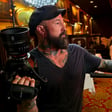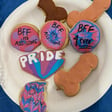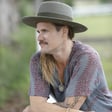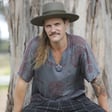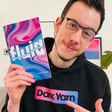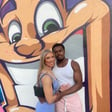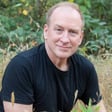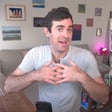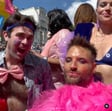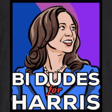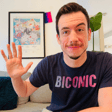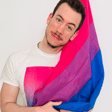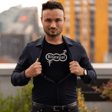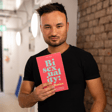
Going Bi-ral with RJ Aguiar
What's it like to go viral with your Bi+ coming out story? We asked that and more to RJ Aguiar, the OG bi YouTube sensation. in our 2-part season 5 premiere! In this episode, RJ discuss his personal bisexual journey, reactions to his coming out (both privately and on social media), the experience of being a very public bi guy years before the more recent (modest) increase in representation, how to balance and integrate Bi+ content with other important issues, the ways that social media shapes how we see ourselves, and much more. Stay tuned for part 2 where we discuss more about RJ's modeling, activism, and his work with the LA Bi+ Task Force!
Follow RJ on Instagram: https://www.instagram.com/damnitrj
Follow RJ on Twitter: https://twitter.com/DamnItRJ
Follow RJ on TikTok: https://www.tiktok.com/@damnitrj
"Quick Question" hosted by RJ on TikTok: https://www.tiktok.com/@gotaquickquestion
"Quick Question on Snapchat: https://story.snapchat.com/p/bd17b093-426b-4a13-9d9f-a36dfe8c9231/192565335373824?sender_web_id=ccdf3237-e350-4aa8-9fad-f3ed9dd93d8b&device_type=desktop&is_copy_url=true
"TheNotAdam", RJ's YouTube channel: https://www.youtube.com/user/thenotadam
LA Bi+ Task Force: labitaskforce.org
Two Bi Guys is produced and edited by Rob Cohen
Created by Rob Cohen and Alex Boyd
Logo art by Kaitlin Weinman
Music by Ross Mintzer
We are supported by The Gotham
Made on Zencastr #MadeOnZencastr
Get $5 off a variety pack of Magic Spoon cereal!
http://magicspoon.com/twobiguys
CODE: TWOBIGUYS
You can get 30% off Zencastr for 3 months with promo code: twobiguys -- or just click this link: https://zencastr.com/pricing?coupon=twobiguys&fpr=ex42o. Start recording your own podcast or meetings today!
